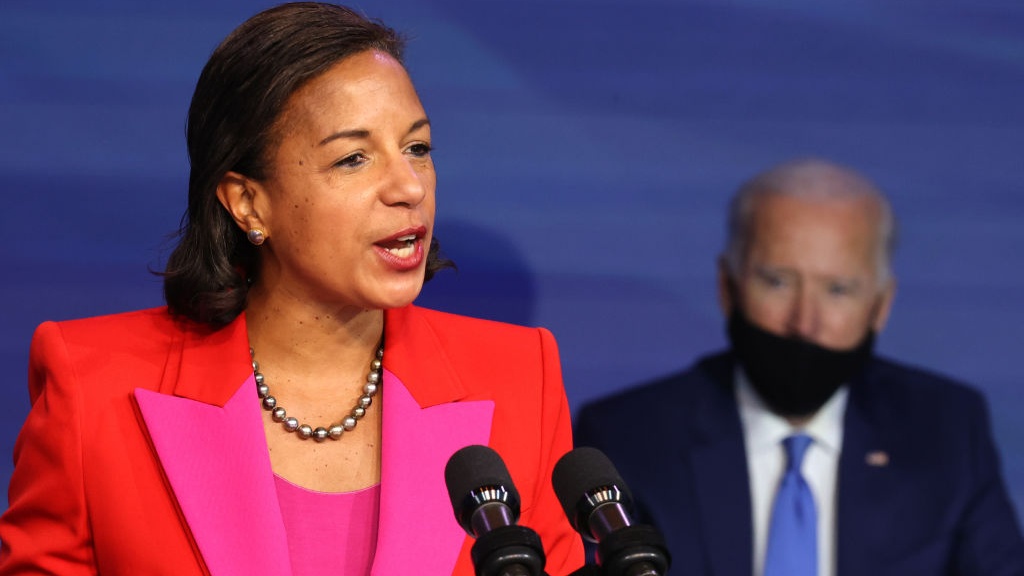President Joe Biden has hit the ground running and immediately began tackling issues of discrimination and injustice less than a week into his presidency.
Among the 17 executive orders that he signed on his first day in office were ones set to examine racial equity in the federal budget, ending the Muslim travel ban and scaling back some of Trump’s harsh immigration policies. On Tuesday, Biden turned his attention directly to racial inequality and signaled his intention to “take action to advance racial equity” with an early morning tweet.
America has never lived up to its founding promise of equality for all, but we’ve never stopped trying. Today, I’ll take action to advance racial equity and push us closer to that more perfect union we’ve always strived to be.
— President Biden (@POTUS) January 26, 2021
On Tuesday afternoon, Biden gave a press conference highlighting the urgency of standing up against "systemic racism and white supremacy." Citing the January 6 Capitol Hill insurrection, he said "now is the time to act." He went on to sign four new executive orders aimed at racial inequities.
Fair housing policies
Biden signed an executive order to combat housing discrimination. Recognizing the past role that the federal government played in racist housing policies such as redlining, Tuesday’s order reaffirms a commitment to battling explicit and systemic racism in housing.
It pledges the federal government to battle racial bias in housing, including opposition to ostensibly race-neutral policies that have a disparate racial impact. The executive order also calls on the Department of Housing and Urban Development to examine policies of the Trump administration to undermine the principles of the Fair Housing Act of 1968.
A quest to end the use of federal use of private prisons
Biden signed an executive order directing the Department of Justice not to renew any of its contracts with private prisons. Private prisons first arose in the 1980s in conjunction with mass incarceration of largely Black and brown people. These for-profit institutions have been shown to be less safe and less secure than other facilities. Private prisons have been key targets for criminal justice reform advocates, and Biden's order brings the federal government in line with states such as California, Illinois, New York and Nevada, all of which have effectively banned private prisons.
Respecting tribal sovereignty for Native American nations
Biden's third executive order addressed Native American nations and the issues of tribal sovereignty and federal-tribal relations. The order reaffirmed the federal government’s commitment to “respect for tribal sovereignty, strengthening the nation-to-nation relationship between the federal government and American Indian and Alaska Native Tribes, empowering self-determination, and advancing racial justice for Native communities.”
Condemning discrimination and hate against Asian Americans and Pacific Islanders
The final executive order on Tuesday condemned xenophobia, racism and violence against Asian Americans and Pacific Islanders, or AAPIs. Harassment of AAPIs increased significantly in 2020 as members of this community were unjustly blamed for the COVID-19 pandemic. Organizations such as the Anti-Defamation League reported a surge in hate crimes and racial incidents against Asian Americans and Pacific Islanders in 2020. The Asian Pacific Policy and Planning Council and Chinese for Affirmative Action documented over 2,000 such incidents in just a 3-month period between March and June last year.
Conservatives such as former President Donald Trump often fueled such racial animosity with rhetoric such as referring to the coronavirus as the “Chinese virus.” Tuesday’s executive orders directed federal agencies to adopt culturally-competent policies towards AAPIs in the government’s COVID-19 response and tasked the Department of Justice with preventing hate crimes against this community.
In addition to detailing these four executive orders, senior White House officials today emphasized that the Biden administration was taking an unprecedented approach to promote racial equity. They pointed to Biden’s Inauguration Day executive order on racial equity, which tasked the Domestic Policy Council, now lead by Ambassador Susan Rice, with coordinating efforts across federal agencies to incorporate considerations of equity into all areas of federal policy. Rice addressed White House reporters this afternoon, reiterating the administration's commitment to racial equity and her role in spearheading these efforts. The White House also noted the creation through the January 20 memo of an interagency data working group to measure and evaluate the impact of federal policies as a way of being accountable.
“For too many American families, systemic racism and inequality in our economy, laws and institutions still put the American dream far out of reach,” Rice said.
"These aren't feel-good policies," the senior official added. "The evidence is clear: equity is good for economic growth and it creates jobs for all Americans."
News reports predicted that Biden would sign orders on policing, such as setting up a commission to examine racial inequity in policing practices or re-enacting former President Barack Obama’s ban on selling federal military equipment to police departments. Though President Biden's statements touched on this area, at one point declaring, "yes, we need criminal justice reform," none of the racial equity executive orders signed thus far address policing.
In a press conference earlier in the day, Rice assured reporters that “we’ll have more to say on criminal justice in the coming weeks.” Biden's remarks also endorsed the John Lewis Voting Rights Act, another issue area not covered in the text of the executive order signed today.
President Biden also framed the government's actions against discrimination and racism as a "battle for the soul of the nation." Senior White House officials emphasized that the administration was just getting started addressing racial inequities and promised that there would be more policies, both executive actions and proposed legislation, to come.
